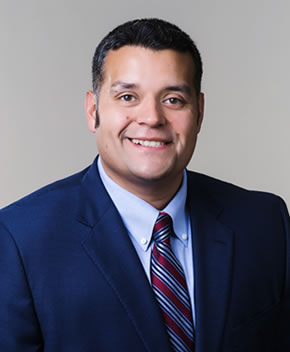We are excited to share that PKSD partner Benjamin Reyes recently joined Rob Schenk on “the Nursing Home Abuse Podcast” to discuss nursing home arbitration agreements and what they mean for nursing home residents and their families.

When families place a loved one in a nursing home, they may not always notice these clauses buried in pages of admission documents. Even when they see them, they may not realize why they matter. However, they do matter a great deal if something goes wrong and a loved one suffers harm.
Rob Schenk & “the Nursing Home Abuse Podcast”
Arbitration agreements are often-misunderstood or ignored clauses hidden within the nursing home contract you sign when admitting yourself or a family member into a nursing home. These agreements legally require disputes with a nursing home to be resolved through private arbitration rather than the court system. Families may not realize that by signing an arbitration agreement, they may be waiving their constitutional right to a jury trial.
Arbitration agreements significantly benefit nursing homes by shielding them from public accountability and limiting residents’ legal options. These agreements force disputes into private arbitration rather than the court system, placing suffering families at a significant disadvantage when seeking accountability for abuse or neglect.
How arbitration agreements help nursing homes:
- Create unfairly one-sided terms, allowing facilities to sue residents in court for unpaid bills while forcing residents to arbitrate abuse claims
- Take advantage of the inherent bias of arbitration systems that favor repeat corporate clients
- Limit or eliminate punitive damages for serious misconduct
- Shorten statutes of limitations
- Waive statutory remedies like attorney’s fees
- Establish a system where nursing homes can bring their strongest claims in court, while residents must resolve their claims in a less favorable legal situation
- Effectively shield nursing homes from accountability for negligence, abuse, and even wrongful death
- Help avoid public court proceedings that would expose wrongdoing
- Creates a false record of history, as arbitration proceedings leave no public record for potential residents and families to scrutinize when researching a facility’s history of abuse or neglect
What Are Nursing Home Arbitration Agreements?
Arbitration agreements are often-misunderstood or ignored clauses hidden within the nursing home contract you sign when admitting yourself or a family member into a nursing home. These agreements legally require disputes with a nursing home to be resolved through private arbitration rather than the court system. Families may not realize that by signing an arbitration agreement, they may be waiving their constitutional right to a jury trial.
Unfortunately, these agreements greatly benefit nursing homes, but leave families at a significant disadvantage when seeking accountability for a family member harmed by abuse or neglect.
The Unconscionability Defense
One of the most effective legal arguments against these agreements is “unconscionability.” This occurs when the terms are so unfairly one-sided that enforcing them would be unjust. As Attorney Reyes clearly explains, common examples include:
- Allowing facilities to sue residents in court for unpaid bills while forcing residents to arbitrate abuse claims
- Limiting or eliminating punitive damages for serious misconduct
- Shortening statutes of limitations
- Waiving statutory remedies like attorney’s fees
These provisions create a system where nursing homes can bring their strongest claims in court, while residents must resolve their claims in a less favorable forum.
Federal Regulations Provide Protection
The Centers for Medicare and Medicaid Services recognizes the potential for abuse in these agreements. Federal regulations explicitly state that nursing homes:
- Cannot require an arbitration agreement signing as a condition for admission
- Must explicitly inform residents of their right not to sign
- Must explain the agreement thoroughly
- Must provide for neutral arbitrator selection
- Must grant a 30-day right to rescind after signing
While violations do not automatically invalidate agreements, they provide powerful evidence of procedural unfairness.
The Reality of the Nursing Home Signing Process
Most arbitration agreements are signed during the stressful, rushed admission process. As Attorney Reyes noted from his extensive experience at PKSD Law, facility staff often lack understanding of the agreements themselves and fail to properly explain their significance. Many residents sign documents without comprehension, feeling pressured during an already difficult transition.
Why Understanding Arbitration Matters
These agreements effectively shield nursing homes from accountability for negligence, abuse, and even wrongful death. By understanding the legal arguments against enforcement, families can:
- Preserve their right to a jury trial
- Maintain access to full compensatory and punitive damages
- Leverage public court proceedings to expose wrongdoing
- Avoid the inherent bias of arbitration systems that favor repeat corporate clients
Have Questions About Nursing Home Arbitration? Contact a Trusted PKSD Nursing Home Abuse Lawyer Today
Throughout the podcast, Reyes shares real-world examples from his extensive courtroom experience, including the fact that many facility staff members who abuse these signatures do not fully understand the agreements themselves. Reyes’ practical approach to fighting these agreements makes this discussion particularly compelling. Including tactics on requesting limited discovery to deposing facility staff who handled the admissions process.
If you suspect your loved one has suffered abuse or neglect in a nursing home, do not let an arbitration agreement prevent you from seeking justice. Our experienced nursing home abuse attorneys at PKSD Law, like Ben Reyes, understand the complex legal strategies needed to challenge these agreements effectively.
Call our firm at 505-677-7777 today to get started




